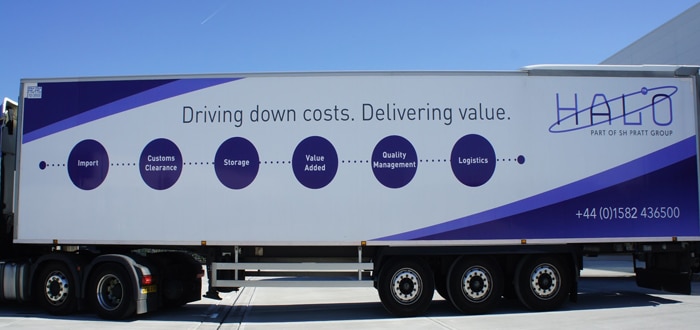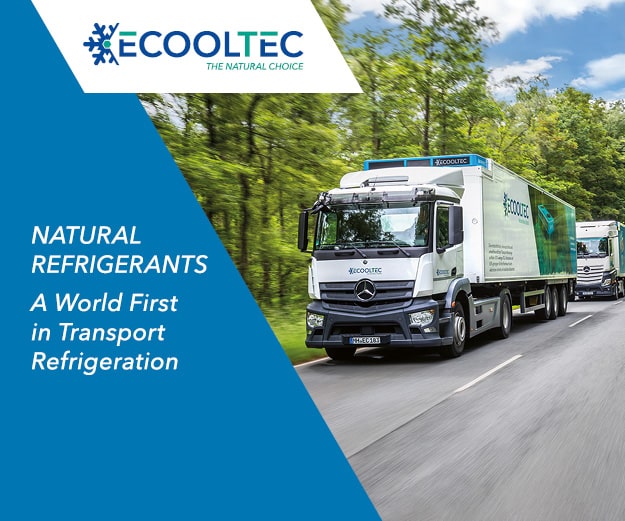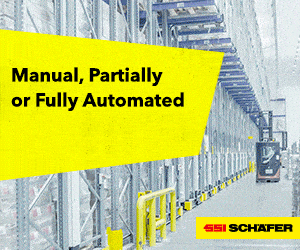You’d be hard pressed to find anyone more committed to delivering the best possible fresh produce supply chain service than Gavin Knight, Managing Director of the new Halo multi-temperature product handling facility at DP World London Gateway.
Gavin Knight’s formal career within fresh produce began in 1990, straight from Harper Adams University, although his exposure to the sector started ten years before this.
“My father ran the largest vegetable cooperative in Lincolnshire, which supplied all of the UK multiplies,” he explains. “I followed in his footsteps and quickly became hooked on the work, probably because it’s so fast-paced owing to the nature of perishables.”
It is this race to maintain product freshness, despite journeys spanning thousands of miles, that drives Halo’s mission to challenge inefficient supply chains and minimise the carbon footprint of fresh produce logistics at every stage possible.
The new state-of-the-art multi-temperature facility offers 110,000sqft of chilled, added-value, ripening and frozen opportunities. Located within DP World London Gateway just eight miles from the M25 and A13 it is being heralded as a ‘game-changer.’
Scheduled to open in late October Halo is expected to deliver reductions of up to 48-hours in the supply chain process. Retailers are already enthralled by the potential financial savings, increased freshness and the environmentally beneficial reduction in ‘food miles’ being proposed.
“Halo is simply the leanest independent, added-value service for the chilled, fresh and frozen food industry,” Gavin continues. “It’s a great facility which happens to be next to a port in an ideal location for nationwide distribution.
“Over the last few decades fresh produce has gone through a journey, initially driven by procurement strategies. Today the focus is more reliant on partnership-based agreements and streamlined supply chains, achieving faster and fresher products whilst at the same time delivering increased competitive models.
“Once you realise you can’t buy any better all you can do is improve the movement of goods, which is the exciting bit for Halo. ‘How do I get produce from A to B, and then on to the consumer in the best and most cost efficient manner?’
“Historically, a container would generally come into a UK port and then be delivered inland to a fresh produce center such as Lincolnshire or Kent. There it would undergo added value before being transported to its point-of-sale. We’re removing the cost of delivering a container inland by keeping the container in the port and then adding value with chilled storage, grading, ripening, packing, labelling and delivery.
“Some 85% of southern hemisphere product comes through this port from South America, South Africa and Australasia, which equates to a significant percentage of the UK’s annual fresh supply. This is how we’ve found ourselves at DP World London Gateway.
“Our parent company SH Pratt Group has always aimed to create the leanest supply chain for the fresh, chilled and frozen sectors. We like to be seen as innovators who disrupt, and simply by placing an added-value facility at the port of entry Halo is reaffirming this reputation.
“In order to achieve this, we’re fortunate to have been able to look at the entire supply chain with a clean piece of paper because we don’t have any legacy buildings or capital expenditure that we need to sweat that could influence our decision making.
“Fresh produce is always going to be challenging because you are trying to deliver the product in the best possible condition while nature actively works against you.
“Our operations thrive on careful planning and collaborative agreement. No matter what the obstacle, everything in the chilled supply chain has to stay within a carefully-controlled atmosphere to maximise yield, flavour and quality. In any other industry you can buy something and six-months later it turns up. Fresh produce on the other hand is comparable to a running tap because it can’t stop.”
The concept seems like simplicity itself, but in such a highly competitive market it is Halo that has recognised and grasped the opportunity, which certainly says something for the organisation’s agility. With this in mind how long will it be until a competitor mimics this location and approach, and what does the future hold for the fresh produce sector?
On the first point Gavin is somewhat circumspect. “I believe we’ll see a competing chilled facility at this port within a year. However, we are confident that with our knowledge, expertise and focus on what our customers require we will succeed. Innovation is evolutionary so at the moment a lot of our customers are buying from multiple facilities throughout the UK. We’re saying consolidate your volume and utilise this concept instead. First we’re building awareness. Next, people will adopt it.
“So where do you go from there? Well, it’s great to be here but you have to deliver effectively and we have the benefit of having Kinship Logistics, Part of the SH Pratt Group of companies complementing our logistics network ensuring competitive rates.”
On the question of what the future might hold for innovation in the fresh produce sector, Gavin adds: “There’s always nervousness about change. You have early, mid and late-adopters and we’ve seen all of these to date, but overall the interest in Halo has been phenomenal.
“This is also true in our approach of reducing container movements inland into an already congested road network. This will also deliver a fresher, leaner, faster and more environmentally friendly supply-chain. The early-adopters are pushing us to grow operations as soon as possible, and we’re having conversations with the leading retailers who are keen to reap the benefits. This is evidence enough to suggest that the concept is the right one.
“I’m very confident in our ability to deliver the best-in-class independent added-value operation and welcome all-comers from the industry to visit us and experience the positives of Halo for themselves.
“We’re also realistic about agility and the perishable nature of agricultural products. It’s vital to appreciate that when it’s taken years to successfully grow products, exporters and importers are naturally passionate about how their goods are taken care of. We strive to promote trust and transparency because this business is all about having and sharing the right information.
“DP World London Gateway has spent £1.4 billion on infrastructure to date, making this the fastest growing port in Europe, and the third fastest growing in the world. It’s also the quickest and most automated operational port in the UK serving 1,500 vehicles per day with an average container turnaround of 37 minutes. Fresh produce isn’t the only thing moving at high speed here and October 2018 can’t arrive soon enough for us.”
For more information visit www.halo3pl.com or call 01582 436500.











